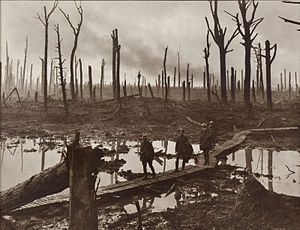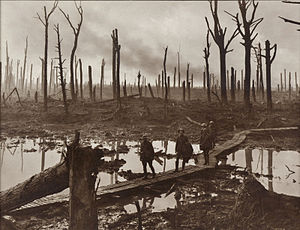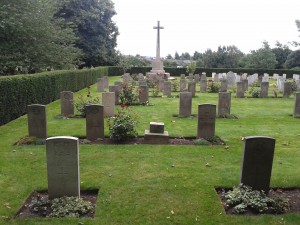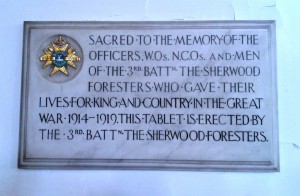Community, Identity and Commemoration: Britain and the First World War
Friday 23 June, Heap Lecture Theatre, University of Derby, Kedleston Road
 The Passchendaele campaign, fought in the Flanders mud, provides many of the most enduring images of the Western Front. It also remains one of the most controversial battles of the War. At this public conference, the continuing reinterpretation of the battle will be discussed as we approach the 100th anniversary of the ‘Battle of Mud’. The academic controversies concerning the Passchendaele campaign have often reflected differing viewpoints on British identity and the extent to which the War exemplified British values. The conference will explore how the War impacted on Britain’s communities and the impact it has had on the evolution of a shared identity. It will examine the various ways in which Britain has marked the First World War centenary, examining the social, cultural and political influences that have shaped the commemorations. As the Silk Mill Museum hosts the Weeping Window, from the installation ‘Blood Swept Lands and Seas of Red’ by Paul Cummins, the Conference at Derby University provides an opportunity to discuss what impact the centenary events have had on public knowledge and understanding of the Great War.
The Passchendaele campaign, fought in the Flanders mud, provides many of the most enduring images of the Western Front. It also remains one of the most controversial battles of the War. At this public conference, the continuing reinterpretation of the battle will be discussed as we approach the 100th anniversary of the ‘Battle of Mud’. The academic controversies concerning the Passchendaele campaign have often reflected differing viewpoints on British identity and the extent to which the War exemplified British values. The conference will explore how the War impacted on Britain’s communities and the impact it has had on the evolution of a shared identity. It will examine the various ways in which Britain has marked the First World War centenary, examining the social, cultural and political influences that have shaped the commemorations. As the Silk Mill Museum hosts the Weeping Window, from the installation ‘Blood Swept Lands and Seas of Red’ by Paul Cummins, the Conference at Derby University provides an opportunity to discuss what impact the centenary events have had on public knowledge and understanding of the Great War.
Timetable
13.00: Welcome
13.15: Dr Ian Whitehead: ‘The Battle of Mud’: Perspectives on the Passchendaele Campaign, 1917
14.00: Break
14.15: Professor Paul Elliott: Derby Public Parks in the First World War and Beyond: Recovering a Hidden History of the Home Front
15.00: Break
15.15: Christopher Batten, BA (Hons): Life in Ruhleben Camp: Edwardian Britain in Microcosm
15.45: Thomas Debaere, BA (Hons): Requiem: Foulds, Beaverbrook and a ‘British’ Festival of Remembrance
16.00: Break
16.15: Dr Kathleen McIlvenna: Communities, Government and Heritage: The Centenary of the First World War and Public
History
17.00: Close
Booking is now open. Please click here to register your interest.


 This talk will argue that public parks were caught up in some of these reactions and ambiguities, and were utilised both in support of the war effort in various ways and also sometimes as places where resistance to the war and its consequences occurred. The recruitment of hundreds of thousands of men for the armed forces, food shortages and rationing, the assumption of male work roles by numerous women, all impacted upon urban parks and green spaces. As we shall see, public parks in Derby and other places were requisitioned for various purposes including military (such as anti- Zeppelin and aircraft guns), defensive, governmental, medical and for food production, particularly after the Defence of the Realm Act or (DORA) was passed. They also played an important role in maintaining morale when some other forms of recreation were curtailed such as organised sports like football and rugby. At the same time, parks were places where civilian and military populations on leave or recuperating could temporarily escape from some of the demands of war and even resist authority. On occasion they served as venues for anti-war and pacifist meetings and demonstrations too.
This talk will argue that public parks were caught up in some of these reactions and ambiguities, and were utilised both in support of the war effort in various ways and also sometimes as places where resistance to the war and its consequences occurred. The recruitment of hundreds of thousands of men for the armed forces, food shortages and rationing, the assumption of male work roles by numerous women, all impacted upon urban parks and green spaces. As we shall see, public parks in Derby and other places were requisitioned for various purposes including military (such as anti- Zeppelin and aircraft guns), defensive, governmental, medical and for food production, particularly after the Defence of the Realm Act or (DORA) was passed. They also played an important role in maintaining morale when some other forms of recreation were curtailed such as organised sports like football and rugby. At the same time, parks were places where civilian and military populations on leave or recuperating could temporarily escape from some of the demands of war and even resist authority. On occasion they served as venues for anti-war and pacifist meetings and demonstrations too.